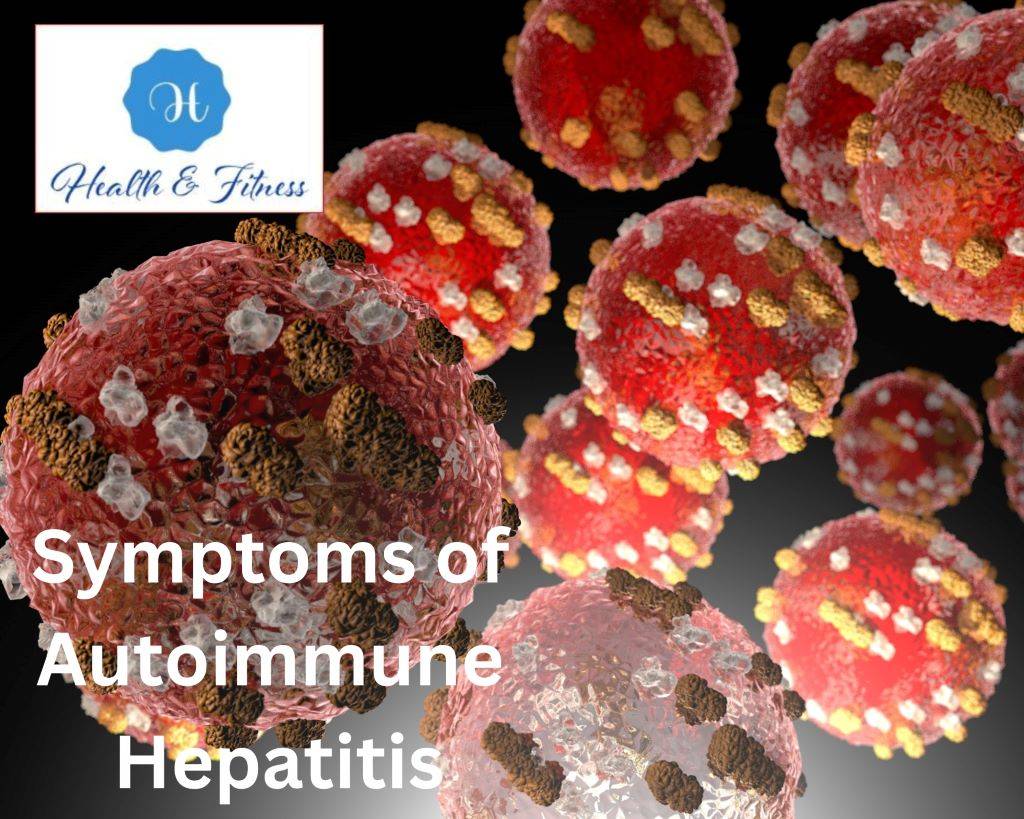Autoimmune Hepatitis: Understanding the Causes, Symptoms, Diagnosis, and Treatment Options
When the immune system destroys liver cells, it causes autoimmune hepatitis, a chronic inflammatory liver disease. Untreated, the illness may cause severe liver damage, cirrhosis, and liver failure in one in 100,000 Americans. Autoimmune hepatitis is more frequent in women than males and commonly runs in families.
The exact causes of autoimmune hepatitis are not fully understood; it’s thought to be hereditary and environmental. This blog post will discuss the causes, symptoms, diagnosis, and treatment options for autoimmune hepatitis. We will also provide tips on managing the condition and living a healthy life. Understanding Autoimmune Hepatopathy is crucial for those who are living with the condition,
Their loved ones, and healthcare professionals. Let’s dive in!
Table of content
Causes
Symptoms
Diagnosis
Treatment
Managing
Causes of Autoimmune Hepatitis

I did not fully understand the exact causes of Autoimmune Liver Disease However, research has shown that genetic and environmental factors may cause it. Here are some potential causes of Autoimmune Hepatopathy:
1- Genetic Factors
Genetics may play a role in the development of autoimmune hepatitis. Studies have shown that some genes may make someone more likely to get an autoimmune disease. Including Autoimmune Liver Disease. Research has identified a specific gene, human leukocyte antigen (HLA), Autoimmune Hepatopathy-related. This gene increases Autoimmune Hepatopathy risk.
2- Environmental Triggers
Environmental factors may also trigger Autoimmune hepatitis, such as viruses, medications, and toxins. Autoimmune Liver Disease has been connected to the mononucleosis-causing Epstein-Barr virus.
Minocycline, nitrofurantoin, and statins may also cause autoimmune liver disease.
3- Another autoimmunity
Those with type 1 diabetes, rheumatoid arthritis, and inflammatory bowel illness commonly develop autoimmune hepatitis. Some illnesses may have immune system abnormalities that cause Autoimmune Hepatopathy. So, genetic and environmental variables, such as viruses, drugs, chemicals, and other autoimmune illnesses, induce autoimmune hepatitis. Although the specific origins are unknown, recognizing the probable triggers may assist healthcare professionals and patients in managing and treating the illness.
Symptoms of Autoimmune Hepatitis

Autoimmune hepatitis can present as acute or chronic liver disease, and its symptoms can vary from person to person. The severity of symptoms may also vary. Here are some common symptoms of Autoimmune Hepatopathy:
1- Acute and Chronic Symptoms of Autoimmune hepatitis
It can present as acute or chronic liver disease. Acute autoimmune hepatitis often presents suddenly with symptoms such as fatigue, nausea, vomiting, and abdominal pain. Chronic autoimmune hepatitis may present with mild, non-specific symptoms such as fatigue, joint pain,
and itching.
2- Common Signs of Liver Inflammation
Liver inflammation is a hallmark of autoimmune hepatitis. Some common signs of liver inflammation include yellowing of the skin and eyes (jaundice), dark urine, and pale stools. Individuals with autoimmune hepatitis may also experience abdominal swelling, tenderness, and liver and spleen enlargement.
3- Extrahepatic Manifestations
Autoimmune hepatitis can also affect other body parts, leading to extrahepatic manifestations. These may include joint pain, skin rashes, and thyroid problems. Autoimmune hepatitis increases the risk of bone problems like osteoporosis. Not all people with autoimmune hepatitis have symptoms. So we recommend routine liver function tests for individuals at high risk for the disease, such as those with a family history of autoimmune disorders.
Overall, the signs and symptoms of autoimmune hepatitis can range from mild to severe and may present as acute or chronic liver disease. Common signs of liver inflammation and extrahepatic manifestations may also be present. If you encounter any of the symptoms of autoimmune hepatitis, you must get medical help as soon as possible.
Diagnosis of Autoimmune Hepatitis

Diagnosing autoimmune hepatitis requires a comprehensive evaluation, including medical history, physical exam, and laboratory tests. Here are some of the diagnostic tools that healthcare professionals may use to diagnose autoimmune hepatitis:
1- Medical History and Physical Exam
A medical history and physical exam can provide important clues about autoimmune hepatitis. Your healthcare provider may ask about your family history of autoimmune disorders, any medications you are taking, and any symptoms you are experiencing. They may also perform a physical exam to look for signs of liver inflammation, such as abdominal swelling or tenderness.
2- Liver Function Tests
Liver function tests are a group of blood tests that measure the levels of enzymes and proteins produced by the liver. Abnormal liver function tests can show liver damage or inflammation, which may indicate Autoimmune Hepatopathy.
3- Autoantibody Tests
Autoantibodies are antibodies that mistakenly attack the body’s cells. In Autoimmune Hepatopathy, the immune system produces autoantibodies that attack liver cells. Healthcare professionals can test for autoantibodies in the blood to help diagnose Autoimmune Liver Disease.
4- Liver Biopsy
A technique known as a liver biopsy involves the removal of a tiny portion of liver tissue and its subsequent examination under a microscope. A liver biopsy can help healthcare professionals determine the severity of liver damage and inflammation and the specific type of Autoimmune Hepatopathy. It is important to note that diagnosing Autoimmune Liver Disease can be challenging, as the symptoms can be like other liver diseases. A proper diagnosis is crucial for effectively treating and managing the disease. In summary, diagnosing Autoimmune Hepatopathy involves a comprehensive evaluation, including Medical history, physical exam, and laboratory tests. Liver function tests and autoantibody tests. A liver biopsy may detect Autoimmune Hepatopathy.
Autoimmune heathopathy requires medical treatment.
Treatment Options for Autoimmune Hepatitis
The goal of treatment for Autoimmune Liver Disease is to reduce liver inflammation and prevent further damage to the liver. Here are some of the treatment options that healthcare professionals may use to manage Autoimmune Hepatopathy:
1- Medications Corticosteroids and immunosuppressants
are the primary drugs used to treat Autoimmune Hepatopathy? Corticosteroids, such as prednisone, work by reducing inflammation in the liver. Immunosuppressants, such as azathioprine, inhibit the immunological system, preventing liver attacks. Someone commonly uses these drugs together for optimal outcomes.
2- Lifestyle Changes
Besides medications, lifestyle adjustments may also control Autoimmune Hepatopathy. Staying away from alcohol and eating well can make the liver less stressed. Avoiding medicines that can hurt the liver, like acetaminophen, is also essential.
3- Liver Transplant
A liver transplant may be necessary in severe cases of Autoimmune Liver Disease. During a liver transplant, they gave a person with Autoimmune Liver Disease, a healthy liver from a donor. If other treatments haven’t worked, this procedure can save a patient’s life. Work with your doctor to find the best therapy for your Autoimmune Hepatopathy.
Monitoring liver function and autoantibody levels is essential for managing the disease. In short, Autoimmune Hepatopathy can be treated with drugs, changes in lifestyle, and, in severe cases, liver transplantation, a liver transplant. Working closely with your healthcare provider to develop a personalized treatment plan is crucial for managing the disease and preventing further liver damage.
Managing Autoimmune Hepatitis
Managing autoimmune hepatitis involves medical treatment, lifestyle changes, and regular monitoring.
Here are some tips for managing the disease:
1- Follow Your Treatment Plan
It is crucial to follow the treatment plan prescribed by your healthcare provider. Taking medications as directed and attending regular appointments can help prevent further liver damage and improve overall health.
2- Maintain a Healthy Diet
The liver and general health may benefit from a more healthful diet. Getting enough of the nutrients, you need from a diet high in fruit, vegetable, and whole-grain sources in addition to antioxidants that protect the liver from damage.
3- Avoid Alcohol and Harmful Substances Alcohol
other harmful substances can cause liver damage and exacerbate the symptoms of Autoimmune Liver Disease.
Avoiding these substances and speaking with your healthcare provider about any medications or supplements that may harm the liver is essential.
4- Stay Active
Regular exercise can help improve overall health and reduce stress on the liver. Speak with your healthcare provider about an exercise plan that is safe and appropriate for your specific case of Autoimmune Liver Disease
5- Regular Monitoring
Monitoring liver function and autoantibody levels is essential for managing Autoimmune Hepatopathy. Your healthcare provider may recommend frequent blood tests or imaging tests to monitor the progression of the disease and adjust your treatment plan as needed.
6- Seek Support
Living with a chronic illness like Autoimmune Liver Disease can be challenging. It is essential to seek Support from family, friends, and healthcare professionals. Support groups and counselling can also help manage the emotional aspects of the disease. In short, managing autoimmune Liver Disease involves medical treatment, lifestyle changes, and regular monitoring. Following your treatment plan, maintaining a healthy diet, avoiding harmful substances, staying active, and seeking Support can help manage the disease and improve your overall health.
Conclusion
Autoimmune Liver Disease is a chronic liver disease caused by immune system assaults. Treatment options include medications, lifestyle changes, and, in severe cases, a liver transplant. Managing the disease involves following a treatment plan, maintaining a healthy diet, and regular monitoring.
References
- National Institute of Diabetes and Digestive and Kidney Diseases. (2017). Autoimmune Hepatitis. https://www.niddk.nih.gov/health-information/liver-disease/autoimmune-hepatitis
- European Association for the Study of the Liver. (2019). EASL Clinical Practice Guidelines: Autoimmune hepatitis. https://easl.eu/publication/easl-clinical-practice-guidelines-autoimmune-hepatitis/
- National Organization for Rare Disorders. (2021). Autoimmune Hepatitis. https://rarediseases.org/rare-diseases/autoimmune-hepatitis/



